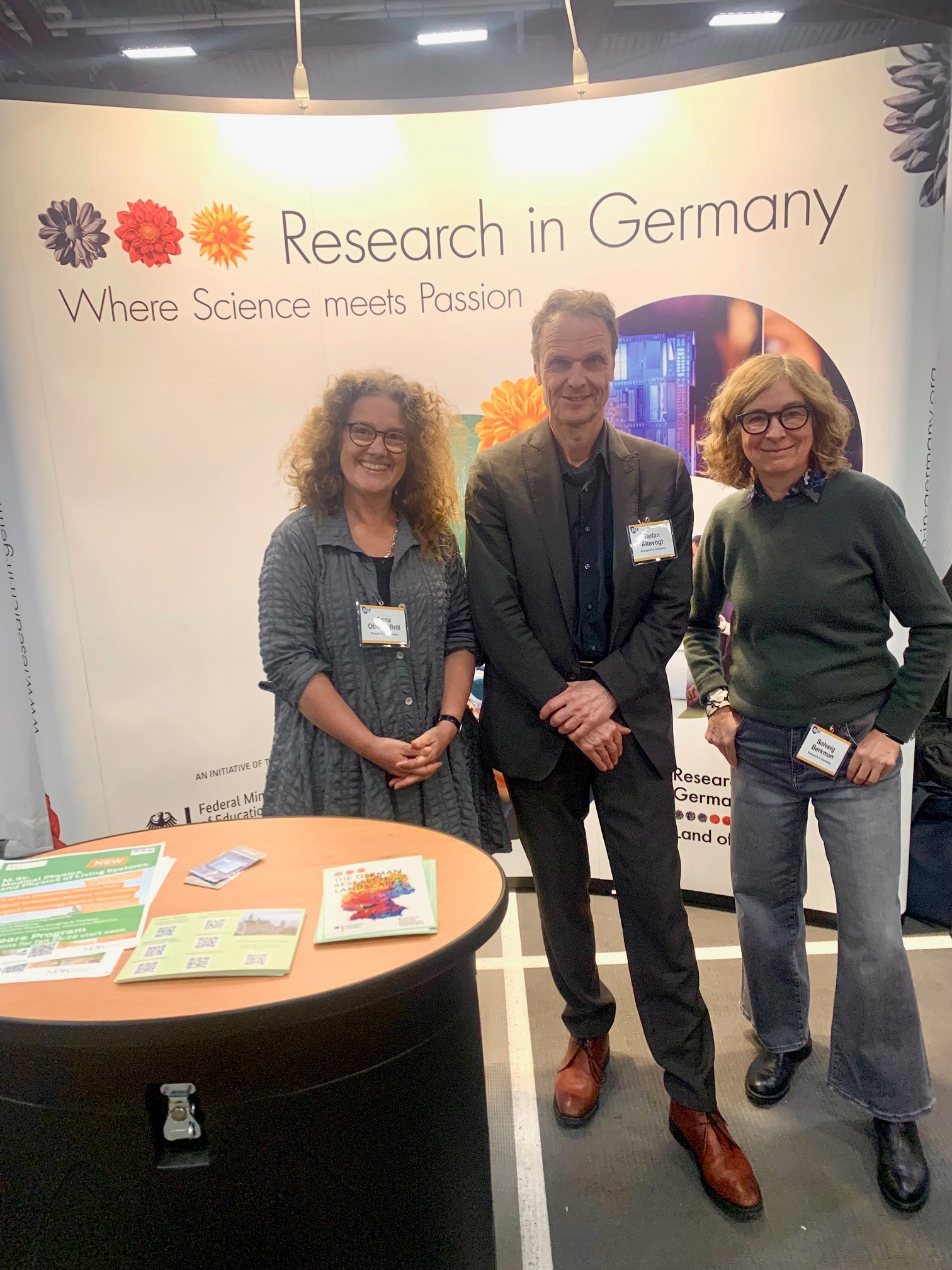Research in Germany at the MIT European Career Fair
For more than 25 years, the European Club of the Massachusetts Institute of Technology (MIT) has been organizing the MIT European Career Fair (ECF), a now nationally established career fair at which Germany and other European countries present themselves to young researchers as attractive places for their next career step in academia and industry.

MIT European Career Fair 2025

Anna Oberle-Brill (GAIN), Stefan Altevogt (DFG) and Solveig Berkman (DAAD) at the Research in Germany-Fair Stand
© private
Anna Oberle-Brill (GAIN), Stefan Altevogt (DFG) and Solveig Berkman (DAAD) at the Research in Germany-Fair Stand
© private
This year, the German Academic Exchange Service (DAAD) once again organized a joint appearance with the German Research Foundation (DFG) and the Alexander von Humboldt Foundation (AvH). Under the umbrella of the “Research in Germany” initiative, the funding organizations presented relevant programs for research funding in Germany with a special focus on early academic career phases. As always, they met with great interest from the three target groups encountered at such events, namely German researchers in the USA, internationally mobile “third-country nationals” and, finally, Americans.
Within these groups -- not least as a result of the first few weeks of the new US administration under Donald Trump, which was perceived as anti-science -- the realization is gaining ground that the USA can no longer claim to be the global leader in research and innovation. Science and innovation have become multipolar, and alongside North America and Asia, Europe is one of the centers are successfully promoted at the ECF. This is not so much about “poaching” from the USA as a research location, but rather a call to expand and internationalize networks and transatlantic cooperation.
Transatlantic research cooperation was also the topic on the night before the ECF, at a roundtable hosted by the DFG North America Office together with the German Consulate General in Boston. According to German Consul General Sonja Kreibich in her welcoming address, the date and topic could not be more fitting, as the new US administration has contributed greatly to uncertainty regarding the USA as a research location in its first few weeks. “It is now more important than ever for the German research and innovation sector to show solidarity with its colleagues in the USA,” Kreibich said. A central reason for the uncertainty, as became clear in the further course of the discussion, was the US government's demand that the US scientific community make more efficient use of the funds invested. International research cooperation in particular could make an important contribution to increasing efficiency.
A presentation by the Director of the DFG Office North America, Dr. Georg Bechtold, gave an overview of the instruments that German research and funding organizations have available for scientific collaborations. As a best-practice example, biophysicist Prof. Dr. Matthias Schneider from TU Dortmund University explained his scientific collaboration with Boston University, whose Chair of the Physics Department, Prof. Dr. Shyam Erramilli, also emphasized the scientific value of international collaborations. The lively discussion also included the Dean of Physics at TU Dortmund University, Prof. Dr. Markus Betz, Prof. Dr. Jens Kleesiek (Professor of Translational Image-guided Oncology at the University of Duisburg-Essen) and several DFG-funded postdocs from Boston. The group came to the conclusion that (international) cooperation can provide good answers to increasing pressure for efficiency in research and innovation. They also agreed that funding and mobility organizations such as the AvH, DAAD and DFG have suitable cooperation instruments available, but that it is always up to individuals to use these instruments and bring transatlantic research cooperation to life.